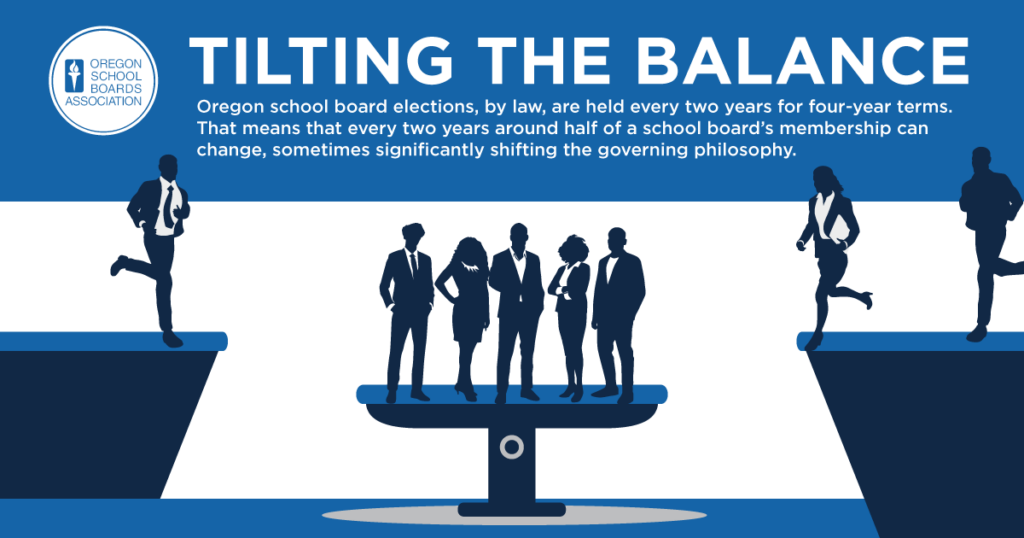
On Tuesday, May 16, half of Oregon’s school board seats are up for election. In some districts, ideological slates of candidates are running together, setting up possible shifts in leadership. Nationally, school board races are becoming political battlegrounds, fueled by special interest group money.
“This is a whole new thing that we have never seen before,” said Thomas Alsbury, a Northwest University professor of educational leadership. He has been studying U.S. school boards for more than 20 years.
Alsbury, an author and national expert on school board governance, urges caution if a slate of challengers unseat their incumbent opponents. Research indicates that rapid swings in school board leadership correlate to lowered student achievement, he said.
Historically, school board turnovers have been unusual, with most incumbents going unchallenged. Districts rarely saw big changes unless schools were failing. If a candidate ran on an issue, it was usually tied to a local concern such as a building policy or an administrative scandal.
Interest groups have discovered political value in school board races, though. They are low-cost elections to entry-level public positions that carry significant policy sway. The rhetoric intensified this election cycle, with candidates embracing national slogans. School governance research shows, however, that agenda-driven board members create conflict, with potentially disastrous ramifications.
School board governance experts urge new members to take it slow.
Alsbury said “activist board members” often have no interest in training or collaborative work. Instead of working through board policy, they pressure staff and initiate attacks on social media and in meetings. They pass attention-seeking resolutions on national issues that have little to do with school governance.
“There is a direct connection between boards that behave in this way and a decline in student performance,” Alsbury said.
Activist board members usually create superintendent turnover. Administrators and teachers often follow as soon as they can. Good staff for a district in strife are harder to find. Enrollment drops, and with it funding, as families with means move away or find other education options. The community stops volunteering and supporting bonds. Classrooms suffer.
Kristen Miles, an OSBA Board Development specialist, has studied board governance and helps train Oregon boards. She said the key to good governance is finding the right balance between being completely hands-off and getting overly involved in details. Candidates that run for boards on a change agenda often are out of balance, she said.
After an election shakes up a board, Miles recommends members enter the new arrangement assuming good intent by all and trying to establish positive working relationships. The majority should make sure the board acts as a whole without alienating anyone. She said it is especially important for new members to recognize that veteran board members have a lot to teach them. School board members are privy to information that doesn’t appear in meetings or public reports.
“Becoming a board member is a humbling experience,” Miles said. “The learning curve is important.”
Miles said a board should pace itself after an election. She recommends the board work closely with the superintendent to set a calendar for the year with markers for big issues such as budgeting, state testing and addressing community issues.
Crook County School Board Member Patti Norris, who is in a contested race Tuesday, said new board members should listen and ask questions before making pronouncements.
“When you don’t have complete information, it tends to make everything more extreme: The good sounds better and the bad sounds worse,” said Norris, an OSBA Board member.
Alsbury said boards need clear procedures and protocols. He said he has worked with board members at both ends of the political spectrum who were able to be effective by being respectful and keeping the focus on student needs.
“It’s not about not being passionate,” he said. “It’s about how you go about it.”
– Jake Arnold, OSBA
[email protected]